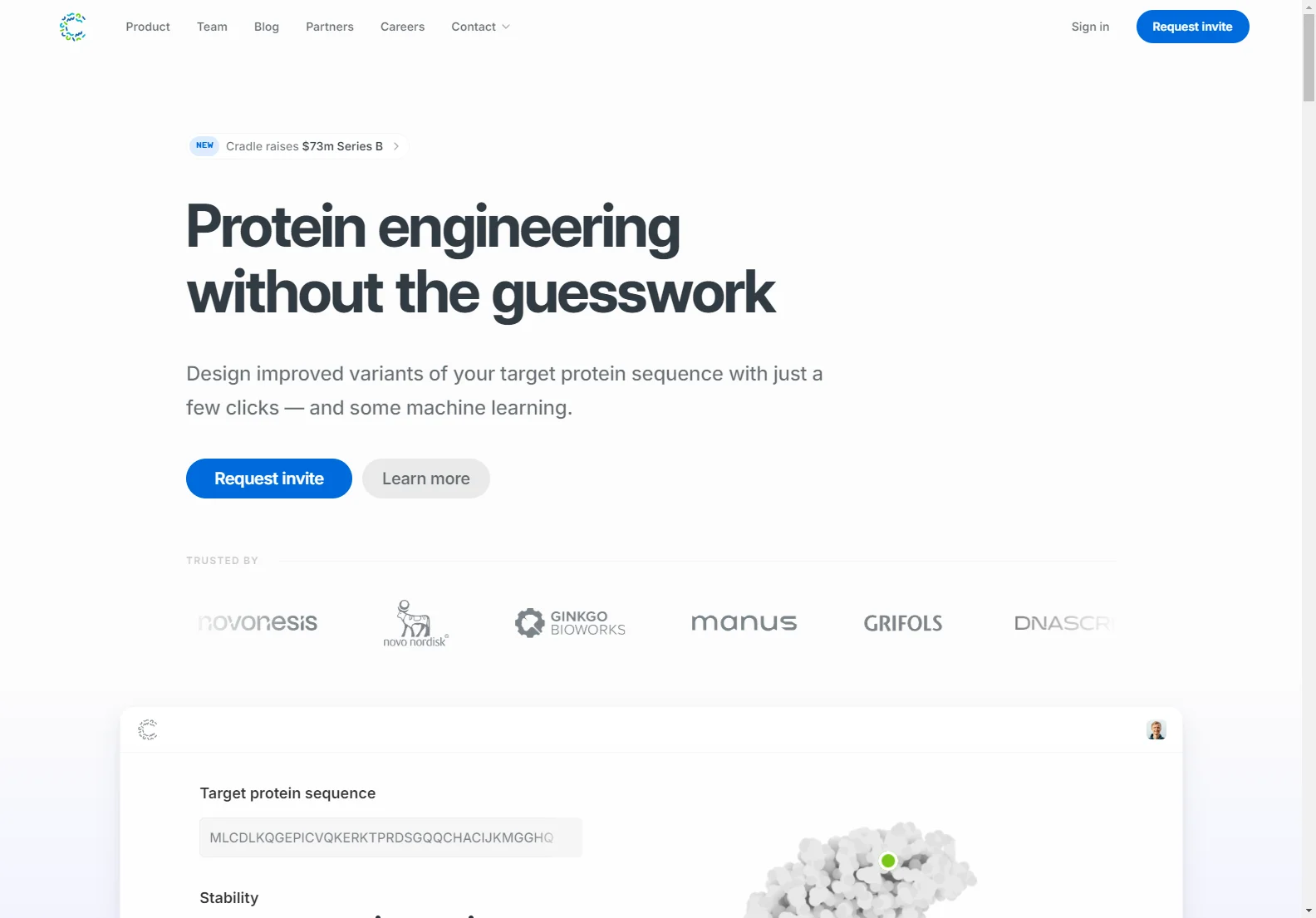Cradle: Revolutionizing Protein Engineering with AI
Cradle is a groundbreaking AI-powered platform designed to streamline and accelerate protein engineering. It leverages machine learning to predict and design improved protein variants with unprecedented efficiency, eliminating much of the guesswork traditionally associated with this complex process. This allows researchers to achieve their objectives significantly faster and more cost-effectively.
Key Features and Benefits
- Intuitive Interface: Cradle boasts a user-friendly interface, making it accessible to researchers of all technical levels. The platform is designed to integrate seamlessly into existing workflows.
- Multiple Property Optimization: Unlike traditional methods, Cradle can simultaneously optimize multiple protein properties (e.g., stability, activity, solubility) in a single round, saving valuable time and resources.
- Predictive Modeling: Each generated protein sequence comes with a predicted performance score, minimizing the need for extensive and costly laboratory testing.
- Iterative Learning: Cradle's machine learning models continuously learn and improve with each experimental round, yielding increasingly better protein variants over time.
- Data Privacy and Security: User data and sequences are kept private and secure, with full ownership of intellectual property retained by the user. Cradle employs bank-grade security measures.
- Cost-Effective Solution: Instead of royalty payments, Cradle operates on a flat annual fee per project, providing predictable budgeting.
How Cradle Works
The process is straightforward and efficient:
- Set Up Assays and Objectives: Define the properties you want to optimize and the desired performance targets for your project.
- Generate Sequences: Cradle's AI algorithms generate a set of optimized protein sequences based on your input.
- Test in the Lab: Synthesize and test the generated sequences in your laboratory setting.
- Import Lab Results: Upload your experimental data back into Cradle to further refine the model's predictions and generate even better variants in subsequent rounds.
Use Cases
Cradle's applications span a wide range of biotechnological fields, including:
- Enzyme Engineering: Improve enzyme activity, stability, and substrate specificity.
- Vaccine Development: Design more effective and stable vaccine antigens.
- Antibody Engineering: Optimize antibody binding affinity and other critical properties.
- Peptide and Protein Therapeutics: Develop novel therapeutic proteins with enhanced efficacy and reduced side effects.
Comparisons to Traditional Methods
Traditional protein engineering methods often involve lengthy cycles of trial and error, making the process time-consuming and expensive. Cradle's AI-driven approach significantly reduces the time and cost associated with protein optimization, allowing researchers to focus on other critical aspects of their projects. Unlike traditional methods, Cradle can handle multiple optimization tasks simultaneously, further enhancing efficiency.
Conclusion
Cradle represents a significant advancement in protein engineering technology. Its user-friendly interface, powerful AI algorithms, and focus on data privacy make it an invaluable tool for researchers seeking to accelerate their protein design projects. By leveraging the power of machine learning, Cradle empowers scientists to achieve their research goals faster, more efficiently, and with greater certainty.

